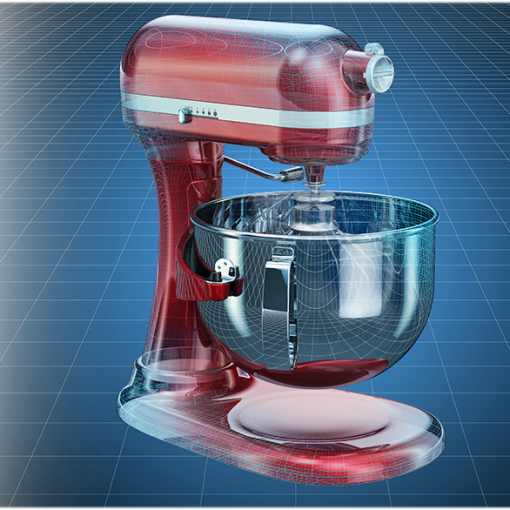Mixers work hard in both home and commercial kitchens. Their gears handle heavy loads, sudden changes in speed, and long hours of use. Without the right lubrication, these parts wear down quickly. As a result, the entire machine may fail sooner than expected. In this post, we explain why lubrication is so important, what problems appear when it is ignored, and how our team at Mixer Repair Services handles these issues every day.
Understanding How Mixer Gears Work
Every mixer relies on a system of gears to transfer power from the motor to the attachments. These gears are built to withstand force, but they need a thin layer of lubricant to move smoothly. Without lubrication, the gears grind against each other and create heat. Consequently, this heat increases friction, and the teeth of the gears weaken over time.
In other words, lubrication reduces stress by creating a cushion between moving parts. This not only prevents premature wear but also helps the mixer run with less noise. When we provide mixer repair services Calgary, we always check gear lubrication first because it is often the root cause of bigger issues.
The Risks of Running Dry
A mixer that runs with little or no lubricant quickly shows signs of trouble. Firstly, you may hear unusual grinding or humming sounds. These noises mean the gears are struggling to rotate. Secondly, the motor works harder to compensate for the added resistance. As a result, the mixer overheats and may eventually burn out.
The long-term risk is even greater. Metal dust and tiny shavings from worn gears spread through the system. This debris can clog bearings, wear down seals, and damage shafts. To clarify, one neglected step—lubrication—can shorten the life of multiple parts. We have seen mixers fail in less than half their expected lifespan because of this issue.
Choosing the Right Lubricant
Not every grease or oil works well for mixers. These machines often operate around food, so the lubricant must be safe, stable, and resistant to high loads. Using the wrong type can be just as damaging as using none at all. Food-grade lubricants are designed to resist moisture, handle constant friction, and stay effective across a wide range of temperatures.
Our team looks for lubricants that not only protect the gears but also remain stable over time. For example, some low-quality products break down and become sticky. This attracts dust and creates even more resistance. When performing a professional mixer repair service, we always verify that the correct lubricant is used and applied in the right amount.
Signs Your Mixer Needs Lubrication Attention
Mixers give us signals when they need lubrication service. A rise in noise, irregular mixing speed, or overheating are all common warning signs. Likewise, if grease begins leaking from seals or you notice an unusual smell from the gearbox, it may mean the lubricant has broken down.
Regular inspection prevents these issues from turning into costly repairs. It is far easier to clean and replace lubricant than to replace gears or motors. We encourage users to keep an eye on these small but clear signals and seek timely service. Simple awareness often saves both time and money.
The Role of Preventive Maintenance
We believe preventive care is always less expensive than major repairs. Regular lubrication checks are part of preventive maintenance that keeps mixers dependable. During maintenance, our team inspects the gears, bearings, and seals to ensure all parts have enough lubrication. This helps us catch wear early and extend the life of the mixer.
Moreover, preventive maintenance supports efficiency. A well-lubricated system requires less energy, which means the motor does not strain as much. As a result, your mixer works better and lasts longer. Setting up routine service visits is one of the best ways to reduce downtime and protect your investment.
How We Service Gear Lubrication
When we handle mixer repairs, our process begins with cleaning. Old lubricant often contains dirt, debris, or metal shavings that must be removed before applying new grease. After that, we carefully apply fresh lubricant in the proper amount. Too little leaves parts exposed while too much creates pressure and leaks.
Our technicians also check alignment, as poor alignment can cause lubricant to wear unevenly. This attention to detail ensures that every gear surface has a smooth coating. Our experience shows that consistent lubrication service adds years of life to mixers.
Extra Tip: Seasonal Impact on Lubrication
One factor often overlooked is temperature change. Cold conditions can make lubricant thick and sticky, while heat can cause it to thin out and lose protection. Therefore, mixers used in kitchens with wide temperature swings need closer attention. We sometimes recommend seasonal checks for heavy-use equipment because conditions affect how long lubricant stays effective.
Small adjustments to service schedules can make a big difference. By adapting maintenance to the environment, we keep machines performing reliably under varying conditions. This practical step is something many owners overlook, yet it prevents avoidable failures.
Extending Gear Life Through Care
Lubrication is not just about keeping gears moving. It is also about extending the life of the entire system. Gears are expensive to replace and often require dismantling the mixer. By ensuring proper lubrication, we avoid the need for such repairs.
We have seen many cases where regular lubrication allowed a mixer to operate smoothly for over a decade. Without it, some machines lasted only a few years. This shows how much difference a simple routine can make. Protecting gears with proper lubrication is one of the most effective ways to maintain reliability.
Taking Action When Problems Appear
If you notice signs of wear or lubrication failure, it is best to act quickly. Ignoring the issue often leads to greater damage. Scheduling service as soon as possible prevents minor issues from spreading to other parts of the system. Our team is trained to diagnose these early symptoms and provide fast solutions.
When you need support, you can reach out through our contact us page. We make it simple to request help and get your mixer checked before the problem grows worse. Timely attention is always the safest path.
FAQ
How often should mixer gears be lubricated
Most mixers need lubrication every one to two years, depending on use. Heavy-duty or commercial units may require service more frequently.
Can I use regular grease on mixer gears
No, mixers require food-grade lubricants. Using regular grease can contaminate food and may not protect against heat and friction effectively.
What happens if I over-lubricate my mixer
Too much lubricant creates excess pressure, leading to leaks and even damaged seals. Proper balance is key.
Is it possible to check lubrication myself
You can look for signs such as noise, leaks, or overheating. However, opening the gear housing requires care and should be done by trained technicians.
Why does my mixer still make noise after lubrication
Noise may come from worn gears, misalignment, or bearing issues. Lubrication helps but cannot fix parts that are already damaged.




